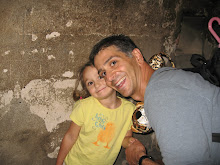It’s easy to blame other people. But what probably harms the humanities the most right now is not a decision that anyone made. No one made a case against the humanities that has now become widely accepted. No one unilaterally decided to stop teaching them, although budget priorities are often elsewhere. Instead, the damage to the humanities may have simply happened. Probably the most insidious harm afflicted against the humanities is the prevalent mode of life in the US.
In 2009, people are working ever increasing amounts of time. With the prevalence of technology, it is difficult to distinguish between time on the job from time off. If I’m at home with my family, but available to my employer via email and cell phone, am I truly at leisure? Worse, if I’m sitting at the dinner table, but my mind is on the day’s events, am I even present? Compounding that is the urban planning of North America, which throughout the twentieth-century was predicated on the idea of private ownership of cars. So when suburban sprawl is factored in, long commutes subtract further from private time. And none of this discussion includes the busyness of home life, such as household and family responsibilities, sleep, and time spent just plain vegging out.
The charge of elitism is often leveled against people who promote the arts. And elitism—let me stress—is absolutely unfounded. People of all walks of life can appreciate the humanities, and they do, from all backgrounds and differing levels of education (beyond the basic education which allows them to read and understand the works, of course—naturally, literary studies presuppose literacy).
But the one thing required of anyone who wants to enjoy the humanities is time. The humanities require time. People dabbling in other fields can read condensations. Amateur scientists can keep up to date by reading summaries of recent studies. A lot of non-fiction books can be understood just fine by reading reviews, sometimes only the dust jacket. In many areas, the gist of an idea is all that’s needed.
But the humanities are different. Reading a novel is absolutely not the same as reading its synopsis; Cliffs Notes can tell you what it’s about, but what it’s about isn’t really the point. What the arts provide is an experience. By reading a literary work you live the events. The same is true of viewing a work of art, or listening to a piece of music. To be sure, it is a vicarious experience, an experience of the imagination and not in the real world. But it is an experience nonetheless. To have the experience art provides requires time—free time.
It also requires brain power. Not necessarily smarts or an advanced degree, but the ability to process the artwork. A reader (or viewer, or listener) can set aside the time, but if she is stressed, exhausted, preoccupied, the experience will be diminished. Or ruined outright.
The humanities don’t only have a requirement, but they also make a demand. It’s not enough to read, the readers must find meaning in the works. Few stories are like Aesop’s fables, which end with a moral. Indeed, most great works of literature cannot be reduced to a one-dimensional meaning. But making sense of art is what makes art great. Again, this places an additional requirement of time and brain power.
The arts can adapt to today’s busy readership. They can be composed more simply, with more direct language, but that won’t fully address the problem. In many respects the problem is getting worse, as the notion of a “24/7” work schedule gains acceptance. As it grows, not only will the experience of the humanities be further degraded. Human experiences of all types will suffer.
Thursday, October 22, 2009
Subscribe to:
Post Comments (Atom)




No comments:
Post a Comment
Note: Only a member of this blog may post a comment.